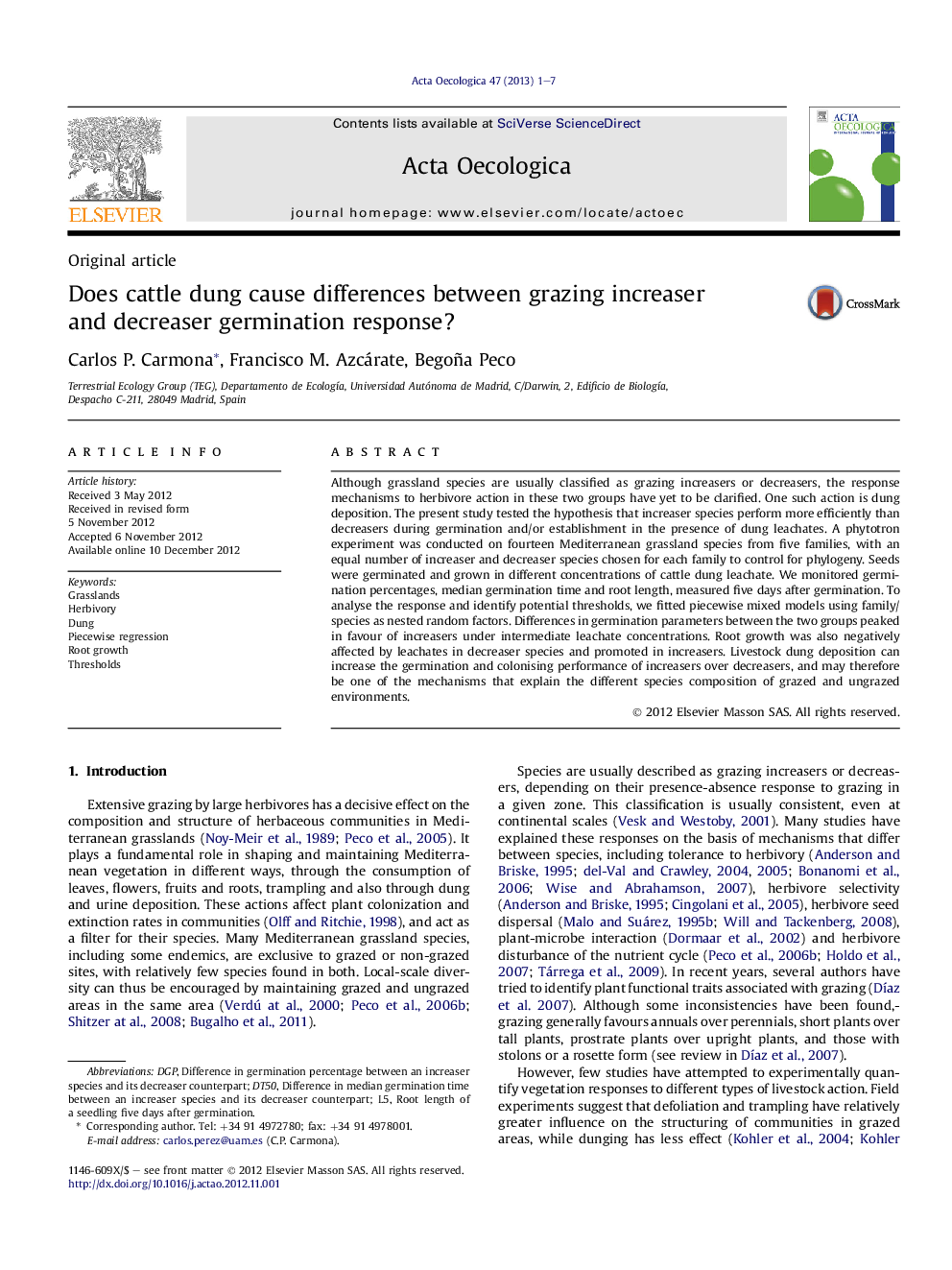| Article ID | Journal | Published Year | Pages | File Type |
|---|---|---|---|---|
| 4381099 | Acta Oecologica | 2013 | 7 Pages |
Although grassland species are usually classified as grazing increasers or decreasers, the response mechanisms to herbivore action in these two groups have yet to be clarified. One such action is dung deposition. The present study tested the hypothesis that increaser species perform more efficiently than decreasers during germination and/or establishment in the presence of dung leachates. A phytotron experiment was conducted on fourteen Mediterranean grassland species from five families, with an equal number of increaser and decreaser species chosen for each family to control for phylogeny. Seeds were germinated and grown in different concentrations of cattle dung leachate. We monitored germination percentages, median germination time and root length, measured five days after germination. To analyse the response and identify potential thresholds, we fitted piecewise mixed models using family/species as nested random factors. Differences in germination parameters between the two groups peaked in favour of increasers under intermediate leachate concentrations. Root growth was also negatively affected by leachates in decreaser species and promoted in increasers. Livestock dung deposition can increase the germination and colonising performance of increasers over decreasers, and may therefore be one of the mechanisms that explain the different species composition of grazed and ungrazed environments.
► Seeds of grazing increaser and decreaser species were germinated under dung leachate. ► Differences peaked in favour of increasers under intermediate leachate concentrations. ► Root growth was reduced by leachates in decreasers and promoted in increasers. ► Dung deposition increase the germination performance of increasers over decreasers. ► Dung deposition can help explaining differences among grazed and ungrazed sites.
